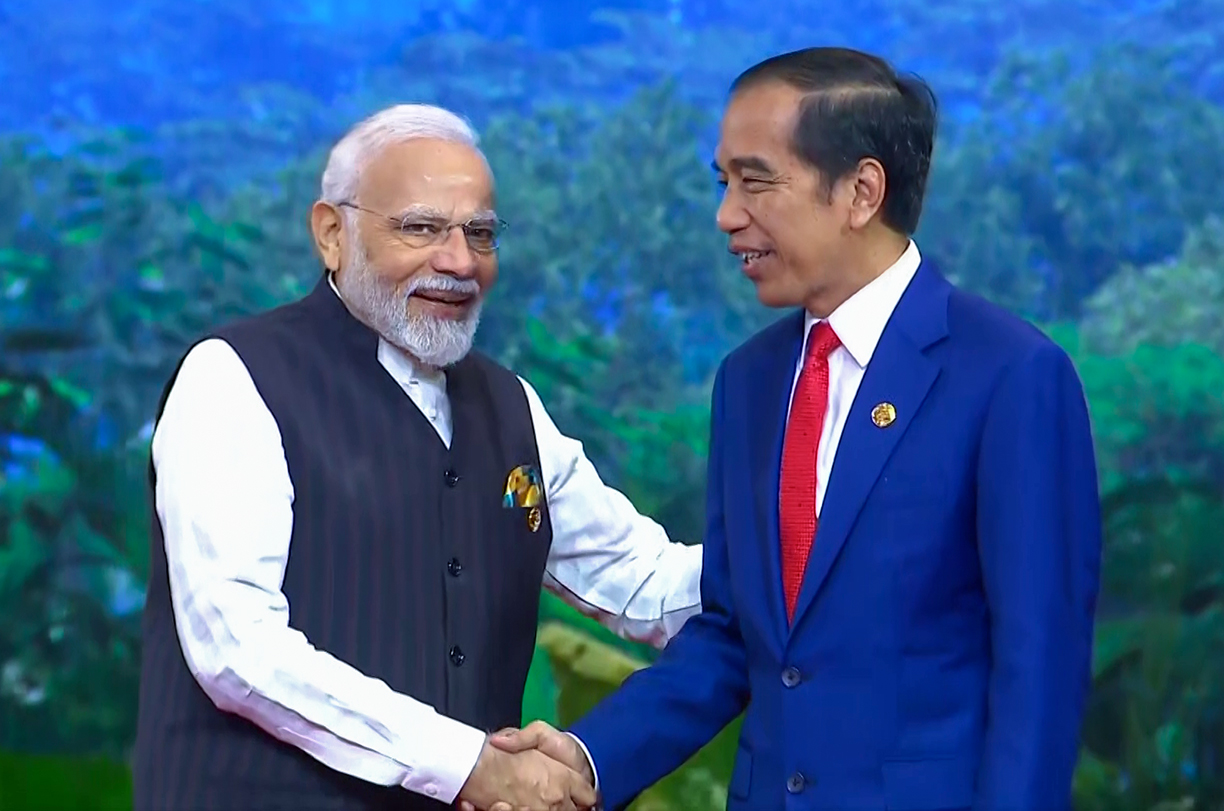


After wrapping up his brief visit to Jakarta where he participated in the ASEAN-India and East Asia Summits, Prime Minister Narendra Modi posted his message on X (formerly Twitter), saying, “Had a very short but fruitful Indonesia visit, where I met ASEAN and other leaders.” PM Modi is spot on when he terms his Indonesia visit “fruitful”.
Needless to say, the visit was “fruitful” and “highly productive” on many counts. An assessment of the visit and statements given at the summits suggests it. One, PM Modi was successful in sending out a meaningful and big message to China on the issue of territorial integrity of other countries. Two, PM Modi used whatever little time he had at his disposal to forge stronger partnerships with the ASEAN and East Asia Summit partners in various strategic and economic sectors. Three, Prime Minister Narendra Modi cemented ASEAN-India bonds by imparting further dynamism to ‘Act East policy’ which is the top priority of the present NDA government in New Delhi. PM Modi’s thrust on Act East policy was felt and experienced when he announced a decision to open India’s embassy in Dili, Timor-Leste. Ministry of External Affairs (MEA) spokesperson Arindam Bagchi underlined the government’s priority in this area, posting a message on X, “Act East Policy in action. Delhi to Dili. At the ASEAN-India Summit in Jakarta, PM Modi announced a decision to open our Embassy in Dili, Timor-Leste.” It goes without saying that ASEAN, which consists of 10 South East Asian countries, is a key pillar of India’s Act East policy. PM Modi has himself termed the platform as a pillar of India’s Act East policy. East Asia Summit which includes 10 ASEAN nations and 8 dialogue partners is also a key forum for India. Significantly, India has been focused on strengthening strategic ties with Southeast Asian states to help them balance or hedge against, or counter Chinese strategic designs and Beijing’s aggressive agenda. Diplomats here in New Delhi are right when they say that PM Modi’s Indonesia visit turned out to be a significant development in terms of India’s effective diplomacy to bring up a more comprehensive strategy to tackle challenges posed by China in the Indo-Pacific.
One of the most significant parts of Modi’s Indonesia visit was that he aptly used the opportunity provided by the ASEAN-India Summit to send out a big message to China. Prime Minister Modi not only expressed India’s full support for ASEAN centrality but also called for an open, free and rules-based Indo-Pacific region during an address at the 20th ASEAN-India summit in Jakarta. PM Modi’s message to China was much-awaited and much-needed as it came against the backdrop of China’s increasing military assertiveness in the South China Sea. That PM Modi also pitched for everyone’s commitment and joint efforts to strengthen the sovereignty and territorial integrity of all countries was another important message as it came days after a number of ASEAN member countries such as Malaysia, Vietnam, the Philippines and Indonesia reacted sharply to Beijing’s territorial claim over South China Sea in its latest edition of the “standard map of China”. Modi’s remarks saying at EAS that India believes that the Code of Conduct for the South China Sea should be effective and compliant with the UN Convention on the Law of the Sea (UNCLOS) should again be seen in this context only. Modi’s declaration of full support for the ASEAN centrality assumes strategic significance amid concern about China’s increasingly assertive activity not only in the South China Sea but also in other regions. South China Sea is a vital trade route where several ASEAN members have claims that conflict with China. Modi reaffirming India’s full support for ASEAN outlook on Indo-Pacific is important as it came a day after China warned against a new Cold War in ASEAN. What is also a welcome statement from PM Modi is that he made it a point to voice concerns over the issue of growing terrorism. He told the ASEAN leaders that “terrorism, extremism, and geopolitical conflicts are big challenges for us”. This statement needs to be viewed as a signal for China as well. China has been called out for shielding Pakistan-based terrorists whenever any proposal to blacklist them came up at the UNSC.